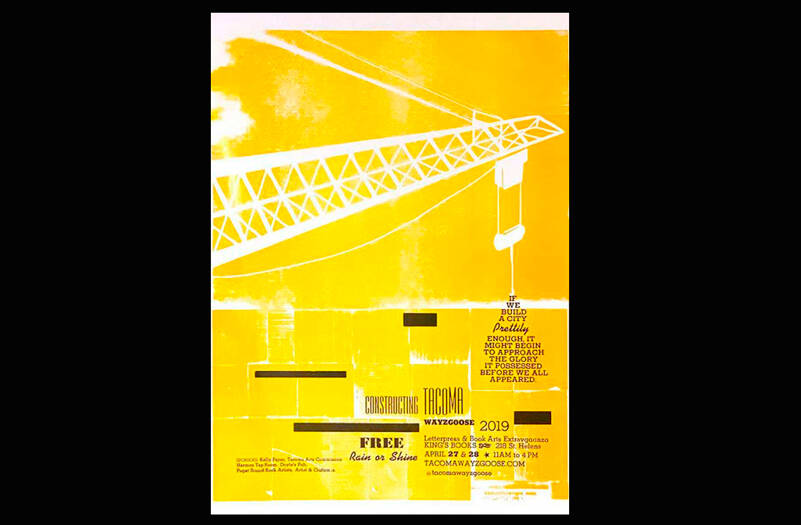By Morf Morford
Tacoma Daily Index
Universal Basic Income (UBI) is one of those ideas that seems to emerge, and in crisis, seems like a solid and responsible reaction to national, if not global financial stress points.
You might consider UBI as the ultimate backstop keeping us as individuals and markets from utter financial catastrophe.
And it probably is.
But, as in every area of life, preparing for emergencies is far better, and certainly less traumatic (and expensive) than responding to them.
We are currently in a situation where more than one in six young people worldwide, have currently stopped working due to the Covid-19 crisis.
Here in the USA, according to a recent survey, 4 in 10 of us could not handle an unexpected one thousand dollar expense.
For those who are not math nerds, that is one short of half of us.
If we, or any society, reach a point where half of us couldn’t handle a one thousand dollar hit, we know that something is deeply wrong with our economy.
UBI then, is about money.
What is work for?
Universal Basic Employment (UBE) is about far more than money.
Employment at its best, is when individuals earn a livelihood by contributing to the health and well-being of their community.
In a healthy economy compensation is earned regardless of whether the executed task is at the moment classified in traditional ways. These could be entrepreneurship, work, volunteering, care for children/sickly/elderly, or any type of education leading to personal skills development.
Participation in any of these activities, in a society that sees its best investment as what could be called human capital, gives people the right to a basic salary.
UBE takes the perspective of the right to participate in society as its starting point.
UBI gives people money with the assumption that it will help them or their business survive. It, in most cases, keeps people in their homes.
UBE assumes that more is required than money alone and that a basic income as such does not guarantee any equal or balanced community involvement/participation of people. UBE considers voluntary, effective and rewarding engagement in society to be a basic human right.
In short, UBE presumes a certain level of active reciprocity between society and its members.
UBE, unlike any other system, focuses on optimizing every citizen’s personal development and contribution potential to society.
With education and advancement hard-wired into citizenship, current obstructions, if not outright disincentives to professional growth, like paralyzing student debt, would be a relic of a barbaric past.
UBI is a financial safety-net for everyone, but UBE and its related income security is a consequence or outcome and not (as in the case of UBI) the primary source of independence.
UBE is inherently public; money given to people is allocated and intended for their contribution to society and personal development, and is seen as a society’s tangible investment in its citizens.
Who pays for it?
One of the major objections to UBI is “How will it be paid for?”
That is a fair and important question- UBI is seen as an expense, one that we all, one way or another will pay for.
UBE is much more like an investment than an expense.
And UBE is an investment that begins to pay off very quickly; a year or two in many cases.
And it pays off long term – an investment of a year or two (or possibly a few more), in most cases will have a full lifetime career payback (in taxes and support of the economy) for forty years or more.
UBI and UBE also have a lot in common.
Both intend to empower people and give them agency over their own lives and careers.
Each of them creates a basic, ground level income for everyone.
Both potentially facilitate life-long learning based retraining as a substitute for life-long employment stability and equip individuals with the freedom to improve their skill set and gain access to more satisfactory activities.
As we’ve seen in the early 2020s, a mismatch between labor and work send the economy – and our daily lives – into perpetual turmoil.
Skilled and so-called unskilled labor vacillate between essential and reviled and the minimum wage – and most salary pay scales have barely changed in decades.
Whatever political or economic philosophy you align with, it would be difficult to make a compelling argument that our economic system is working for anywhere near half of us.
With food insecurity and almost every city hosting the (mostly) unwelcome sight of hundreds of homeless people and their tarps and garbage at their borders and entry points, we and every potential visitor (and investor) see a system in need of some kind of restoration.
As with any program or system, the details are the complications.
What works for one community or one group may or may not work for another.
We are certainly long overdue for some improvements.
********
We’ve brought up UBI on these pages before: www.tacomadailyindex.com/blog/universal-basic-income-the-next-phase/2448877/





